Hamburg, Germany Makes You Smarter & More Liberal.
The Cognitive Influence of Port Cities & A Guide to Hamburg Germany
Within seconds of stepping out of the train in Hamburg, I saw bearded people in dresses, women in Abayas, hippies, and business professionals smoking weed, downing beers, making deals, laughing, and, best of all, mixing.
Hamburg was a refreshing breath of diversity after two months in Poland. The progressive air continued to breeze throughout my entire trip, thanks to my couch surfing host. We walked the streets where anarchists plotted their plans and vagrants pissed their pants, window-shopped the alternative fashion designers, and entered the second-hand shops where clothes became affordable. We sailed through the waters that bring fresh seafood to this otherwise sausage-ridden land, cruised bikes through the tree-shadowed paths where millionaires enjoy the coolness of lakes, and spoke of all the other ingredients that make Hamburg a home for people from all walks of life.
This guide isn’t for all walks of life, though. This is for those who want to save money while enjoying the sea, rivers, art, fashion, and gay-friendly football.
Born Without Borders is a reader-supported guide to the craft of nonconformity, cultural psychology, travel writing and how to salir de las fronteras que impone tu mente. Both free and paid subscriptions are available. If you want to support my work and help me upgrade to more than one cabin bag, the best way is to take out a paid subscription.
Rivers & Sea
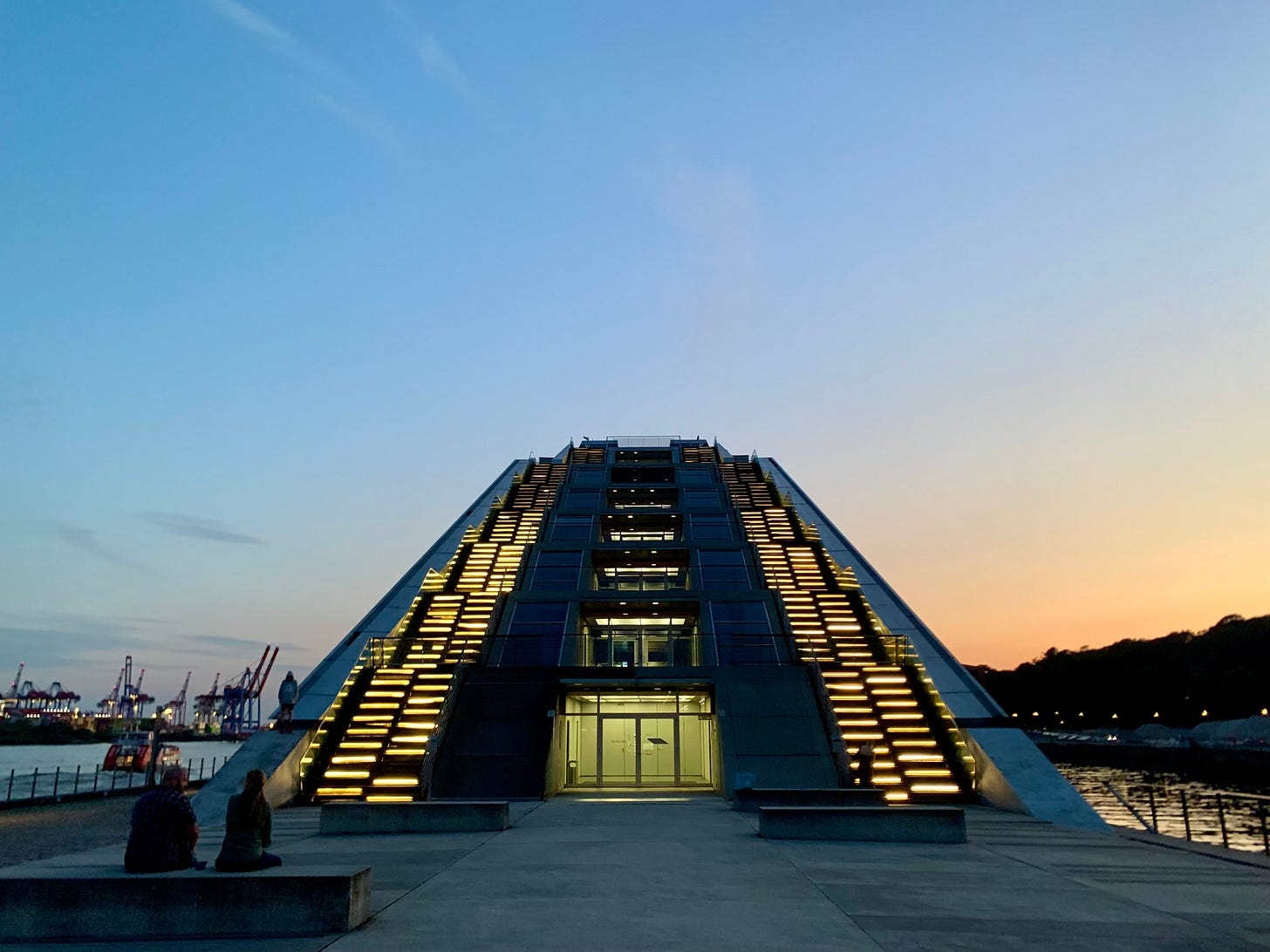
My first impression of Germany was Bavaria, the region where every town claims to have the best sausage. It also happens to be the most conservative region. Although I don’t know the exact correlation coefficient between sausage intake and political disposition, I believe the cause is being too far away from the sea or, better yet, ports.
Hamburg's port is the third-largest in Europe, following Rotterdam in the Netherlands and Antwerp in Belgium. Although stats and the current political climate show that these aren’t the most liberal cities, if you get your head out of the numbers and into the streets, you’ll notice these cities vibrate with diverse, artistic, and forward-thinking communities.
The same goes for other European cities with ports, such as Barcelona, Copenhagen, and Stockholm, although the latter two don’t feel nearly as diverse as Hamburg.
Obviously, not all port cities are liberal, but there’s no doubt that the variety of food, goods, people, and drugs that ships bring impact an open mind and progressive thinking. Plus, there’s no denying that eating fatty fish is healthier for your brain than fatty sausages.
Am I saying progressive thinking takes more brainpower than traditional and conservative thinking?
Of course. Progressive thinking often involves considering multiple perspectives, integrating new information, and adapting to changing environments. Higher openness is also linked to greater neural activity in areas of the brain involved in processing new information and making connections between disparate ideas.
Progressive thinking often involves more complex moral reasoning, which can involve balancing competing ethical principles, considering the welfare of diverse groups, and being open to changing one's views in light of new evidence.
But let’s get back to the travel writing conservatives can enjoy, too (and let’s remember we’re all conservative relative to what we like).
The sea might bring you the people that broaden your mind and the fish to keep it working, but it’s Hamburg’s lakes and canals that bring it peace. Thanks to Danish NGO GreenKayak, you can paddle them for free while collecting waste from the waste from the Alster—Hamburg's second most important river. The first is the Elbe River, which is known for its international importance as a tidal waterway and its susceptibility to flooding.

That’s why you have buildings like the Elbphilharmonie, the iconic concert hall that allows water to flow underneath the building through specially designed openings and channels, ensuring that the water does not flood the surrounding streets.
From here, you’re only a ten-minute bike ride (which is free with Stadtrad, Hamburg’s city bike-sharing system, since it takes under 30 minutes) from Hamburg’s most famous neighbourhood, St. Pauli.
Art & Fashion
My first stop in St. Pauli was the former Nazi bunker transformed into a hip green space for artists and musicians with panoramic views of the city.
A few minutes from here, you have the Repabahn, the street known as the "sinful mile.” As with all Red Light districts, we shouldn’t deny that they support sex traffickers and drug dealers, but from the people I interviewed, it seemed most were there by choice. One woman happened to be a kindergarten teacher saving up for a downpayment through horny dudes.
Not only does the street fulfil the salacious desires of cisgender fuckboys, LGBTQ+- activists, swinging couples, curious minds, and drunken souls, but it’s also a place the pious, bourgeoisie, and high-culture seekers can enjoy.
The Operettenhaus hosts high-quality productions, including popular musicals like Phantom of the Opera and Mamma Mia. The St. Pauli Theater is one of Germany's oldest theatres and offers a variety of performances, including plays, comedies, and concerts. The Schmidt Theater and Schmidts Tivoli are two venues offering a mix of cabaret, musicals, and comedies, often with a unique blend of humour and high-calibre performances. And for those who want to remain cultured while dipping their “toes” into their unconventional sexual side, there’s the Erotic Art Museum, which explores the history and cultural significance of erotic art.
For those interested in experiencing art outside of venues and museums, the Karolinenviertel neighbourhood is known for its bohemian vibe, street art, and independent shops, many of which belong to alternative fashion designers. It’s also known as one of the most left-leaning neighbourhoods along with Schanzenviertel, otherwise known as the “The Schanze,” where you can find the Rota Flora.
The Rota Flora is a former theatre that has become an autonomous cultural and political center since it was squatted in 1989. Although I didn’t hear the conversations happening inside, I did see the lack of conversations and movement happening outside. I’m not sure a collection of homeless people and white dudes with dreadlocks is the best visual rhetoric for anti-fascist movements, but I do believe that football is.
Gay-Friendly Soccer
Some people argue that football brings the world together. Sure, it’s a game people from any country and economic background can play, but it’s anything but uniting. It’s a sport filled with hypermasculinity and commercial pressures where gay people (and anyone with a progressive political stance) are told to shut up while the fans, players, and even officials shout out homophobic slurs without consequence. Meanwhile, “initiatives” like the Premier League’s "Rainbow Laces" campaign are nothing other than token gestures.
However, this isn’t the case with the St. Pauli football club.
Founded in 1910, St. Pauli has historically been a small club with limited success in top-tier football. However, during the 1980s, it began to transform into what it is today: a club known as much for its political stance as for its performance.
St. Pauli has launched campaigns like "Rainbow Day" to promote LGBTQ+ rights. The players and fans are vocal in opposing far-right ideologies, with slogans like "No football for fascists.” The club addresses and even bans fans who participate in racist, sexist, or other forms of discriminatory behaviour. Most importantly, they put their money where their mouth is by supporting charitable initiatives, including refugee rights and social justice campaigns.
St. Pauli, like Hamburg, has popular anti-fascist and anti-discrimination movements, but it’s far from anti-capitalist. After getting through the security lineup and the sensory-harassing perfume section of the duty-free shop, you arrive in “St.Pauli world.” Their skull and bone logos are found everywhere, from sweaters to keychains.
No matter the political stance we take, in our world, progress has a price. There’s no “-ist” or “anti-ist” that can’t be bought and sold. And Hamburg, being one of the richest cities in Germany, recognises that.
If you want to support my work, you can share this article with friends. For those who want Born Without Borders to stay afloat, please remember to subscribe. Every paid subscription helps me make the time to research and write my best work.
Related Articles







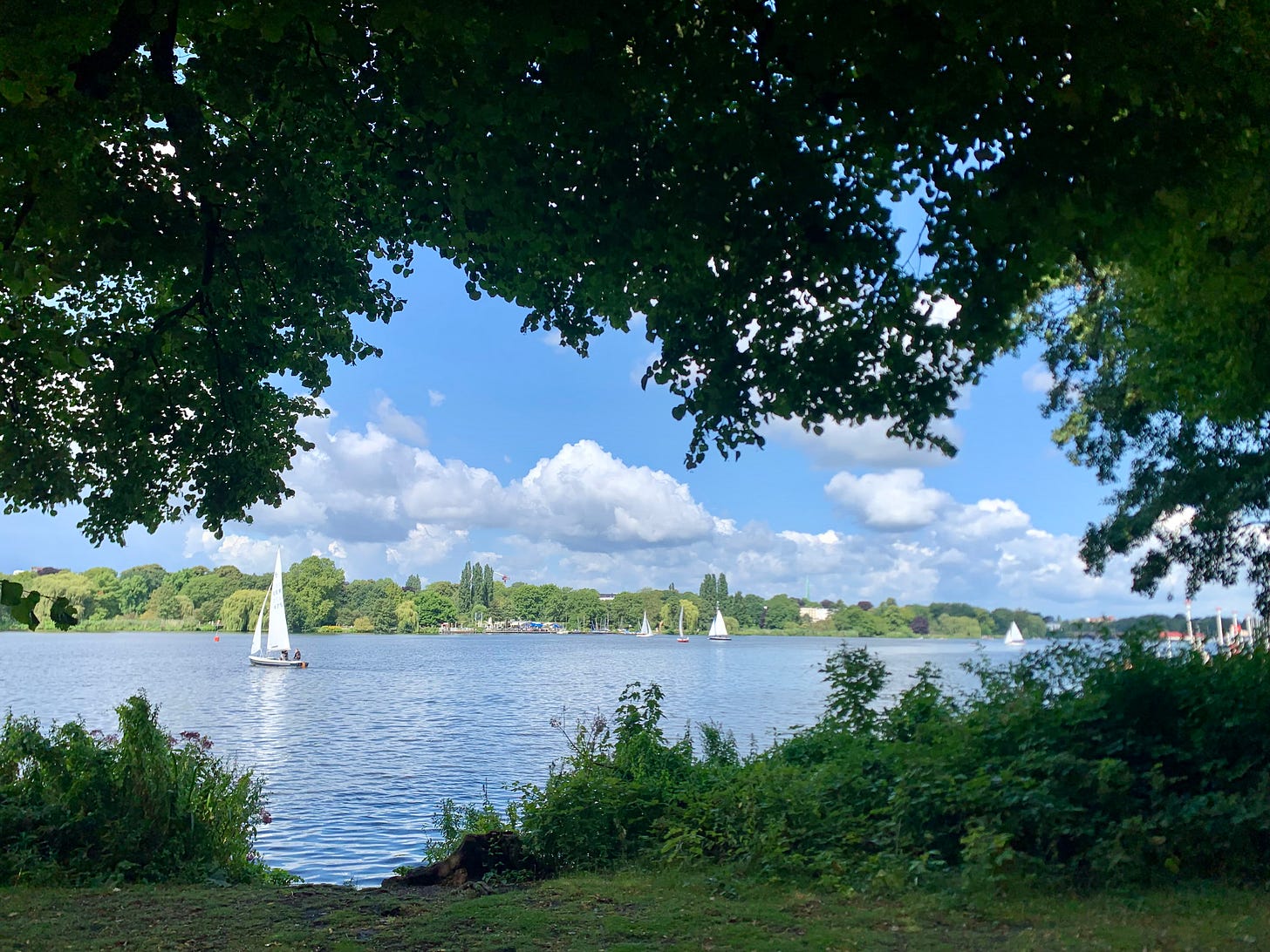
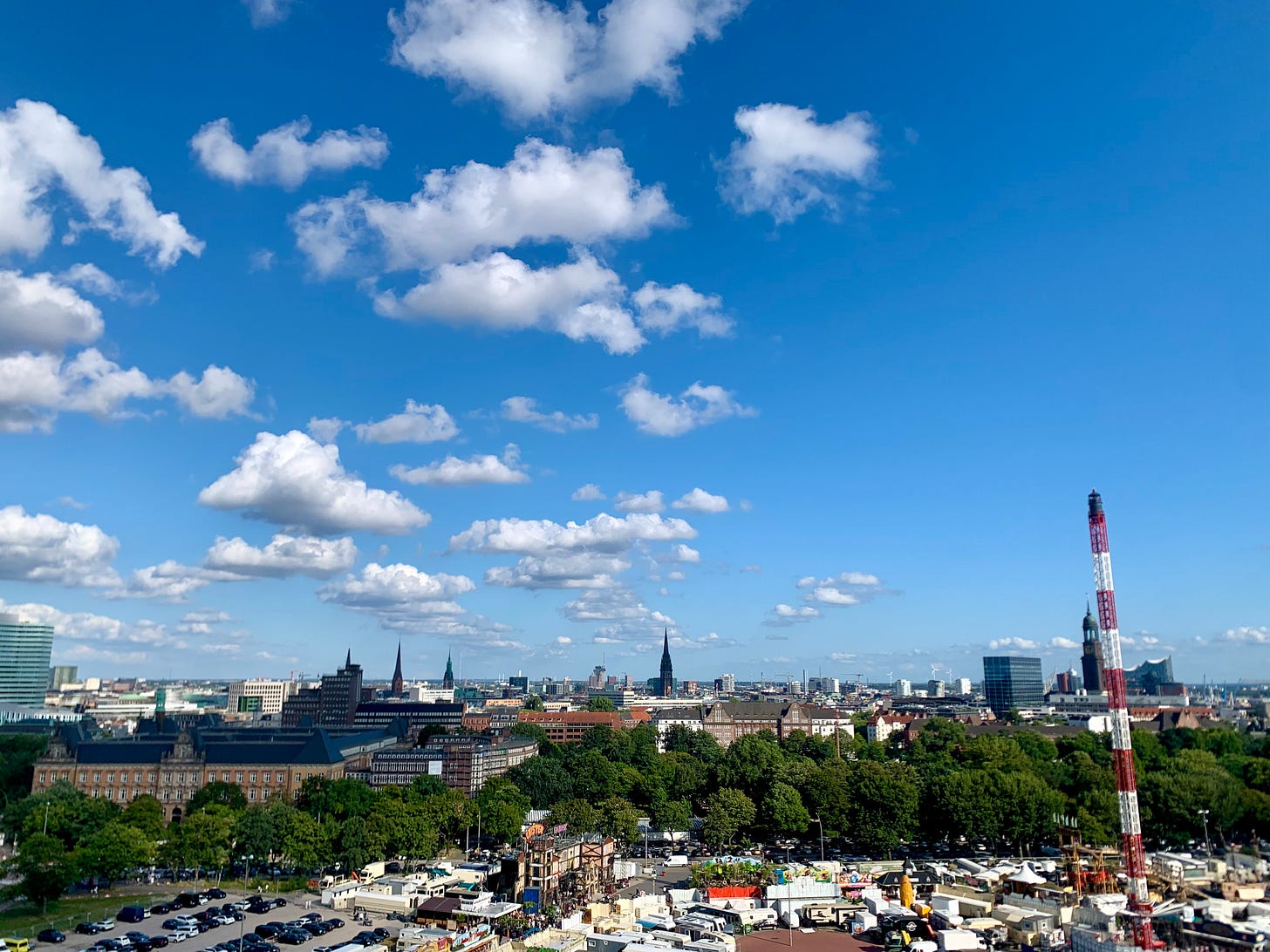
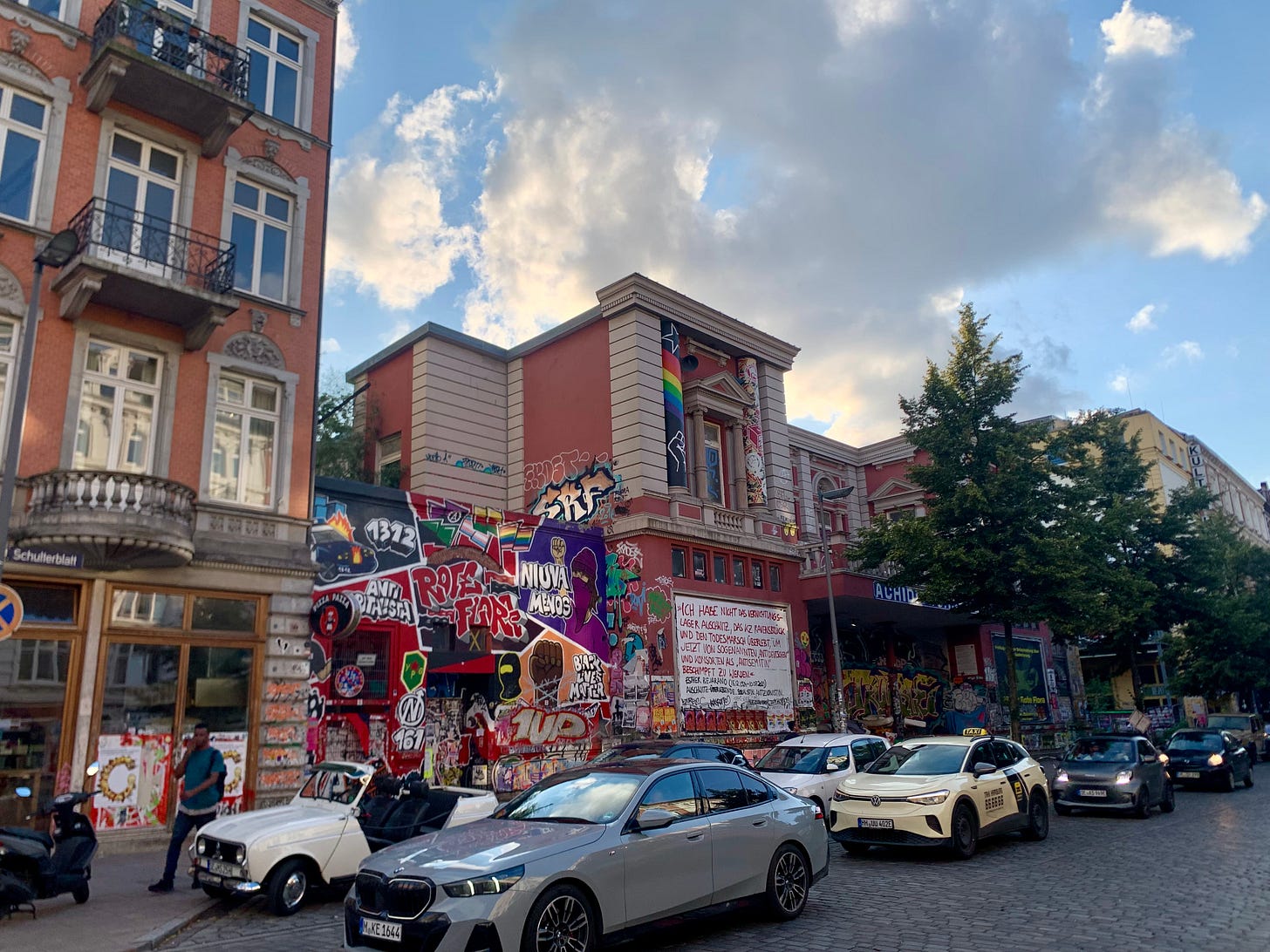
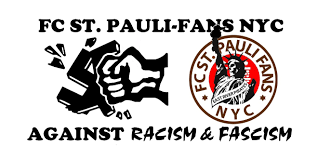



Loved this article, Nolan. I've great memories from many a visit to Hamburg where the Radisson Blu Hamburg was the first hotel that, pre-Radisson, SAS International Hotels opened outside (barely) of Scandinavia. I watched the city grow, and change, since the early 1990s. I felt a special connection to the hotel because it was a Canadian Pacific hotel before we overtook the management.
It's true that port cities often have an interesting vibe and influence. Other European examples include, in my opinion, Riga, Gdansk, Rotterdam, and Antwerp. But Hamburg is larger and perhaps more defined.
This is one of my favorite yet.. I have not thought about the closeness to sea and progressiveness. I live in a landlocked section of Germany too but it's a pretty progressive state with the Green Party leading previously. It might be the nutrition from all the vegan food here ... :)